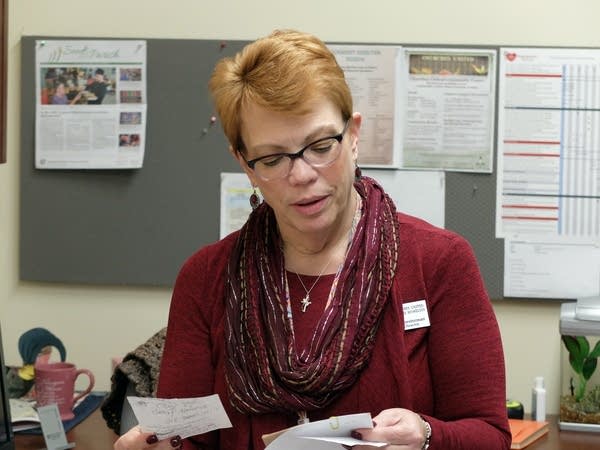Growing population of homeless seniors worries housing advocates

Go Deeper.
Create an account or log in to save stories.
Like this?
Thanks for liking this story! We have added it to a list of your favorite stories.
Alarm bells are going off around the state as homeless shelters and housing organizations witness a troubling rise in the number of seniors looking for help.
"I think we're starting to see the beginning of the wave," said Sue Koesterman, executive director of Churches United for the Homeless shelter in Moorhead. "And I'm not sure how broadly this is being engaged yet. It needs to be talked about."
Across Minnesota seniors still constitute a relatively small part of the overall homeless population, but they are the fastest growing segment of homeless people, according to the Wilder Foundation homeless survey.
It's a problem that's expected to intensify as a wave of baby boomers age into retirement over the next 20 years. But the growth isn't being driven by chronically homeless boomers turning 65.
Turn Up Your Support
MPR News helps you turn down the noise and build shared understanding. Turn up your support for this public resource and keep trusted journalism accessible to all.
James McKinstra, a housing case worker with Mahube Otwa community action partnership in Detroit Lakes, works in several rural counties. He said he's seeing a steady increase in homeless seniors. About a third of his clients have been homeless at various times in their lives, but two-thirds are experiencing homelessness for the first time, he said.
"If they've never experienced homelessness and they're in their 60s or 70s, it's just a huge shock to her system and they don't know how to respond," he said.
McKinstra said the problem is masked by the fact that not all homeless seniors end up in shelters. Couch surfing is common. Some people live in abandoned trailer homes or pile up debt for temporary housing.

Betty Hanson, 73, found her Social Security wasn't enough to even pay rent in the Detroit Lakes area. She says apartments she looked at ranged from $800 to $1,000. "If you only make $800 and some dollars, then that's impossible," she said.
For several years, Hanson lived out of a suitcase, traveling between Minnesota and Arizona, staying with her adult children or renting a room from people looking to earn a little extra cash.
"I never considered myself homeless, but I guess I was," she said.
Finally, at her daughter's urging, Hanson started asking about subsidized housing. With McKinstra's help, she became eligible for a program targeting homeless seniors that allowed her to move into a one bedroom apartment where the rent is based on income.
"I love my little place here," she said. "It's just big enough. Living room, kitchen, bathroom, storage room, bedroom. That's all I need."
A recent study Maxfield Research prepared for a consortium of housing organizations projected that as soon as 2020 there will be a need for 23,000 new affordable housing units for seniors in Minnesota.

That's a staggering demand, said Barbara Dacy, executive director of the Washington County Community Development Agency and president of the Minnesota chapter of the National Association of Housing and Redevelopment Officials. "But it really does quantify this collision between demography and a gap in the marketplace for low-income seniors."
For many low-income seniors affordable housing would be $400 a month. Rents are two or three times higher in many parts of Minnesota.
Dacy says developers are hesitant to build low-income units.
"Developers are savvy investors so if you have to charge a lower rent but your operating costs are higher than that, there has to be a gap financing," she said.
But current prospects for government help with that gap financing are slim. A proposal at the Minnesota Legislature to allow bonding for affordable senior housing projects did not get a hearing this session. In Washington, the Trump administration is proposing significant cuts to grants that help fund affordable housing programs.
In the absence of a concerted effort to reverse these trends, Sue Koesterman expects to see more seniors showing up at her Moorhead shelter.
"It offends me as a pastor that someone who is at and of life should have to receive hospice care in a dorm in a homeless shelter," she said. "To me that's just offensive to my sense of human dignity."


